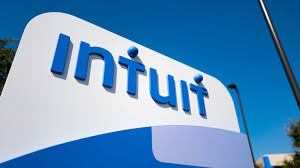Intuit, the parent company of TurboTax, Quickbooks and Mint, has confirmed that it is acquiring Credit Karma for about $7.1 billion in cash and stock.
The deal means that Intuit is now worth more than $74 billion.
Founded in 2007 by Kenneth Lin, San Francisco-based Credit Karma offers its customers free credit scores, as well as help in finding auto loans and credit cards. It also launched a free tax filing service in 2017. The company reportedly has more than 100 million customers and generated around $1 billion in revenue last year. It was valued at around $4 billion about two years ago.
Intuit plans to use the acquisition to offer its customers a consumer finance platform that works like a personalized financial assistant, providing consumers with access to their personal finance information - including income, spending, and credit history—so that they can take advantage of perks such as better interest rates, as well as take any needed steps to improve their financial health.
“There’s a lot of innovation and investment in FinTech, but we don’t see anyone, with our collective capabilities, pursuing a personalized financial assistant to help consumers take control of their financial lives,” Sasan Goodarzi, CEO of Intuit, said. He added that his company believes the deal will help “lower costs for all those involved and level the playing field for consumers regardless of their economic status.”
But not everyone is happy about the acquisition. In fact, some legal experts have warned that the deal raises antitrust concerns because Intuit is the biggest provider of DIY tax-filing software in the U.S. And while Credit Karma’s market share is only 3 percent at the moment, its tax preparation business grew by 50 percent last year. It also has twice as many millennial customers as Intuit.
The experts pointed out that this deal is similar to H&R Block’s attempt to acquire another DIY tax software company in 2011, which regulators blocked.
“There’s no question the acquisition could and should face scrutiny,” said Aaron Edlin, a law and economics professor at UC Berkeley. “There’s a huge concern when the leading firm in an industry such as tax software buys another firm that is competitive, particularly that’s offering free tax software.”
























